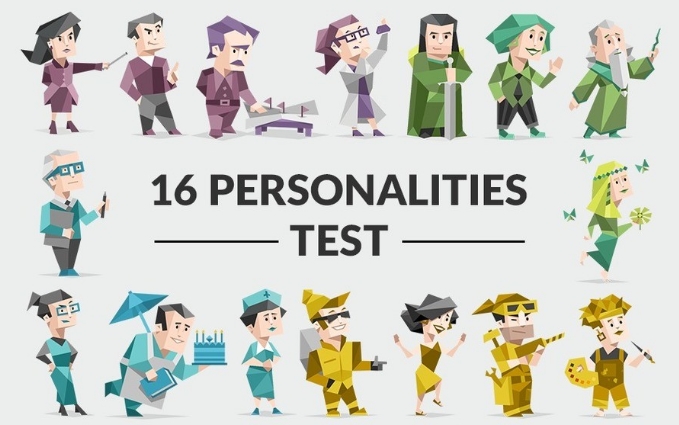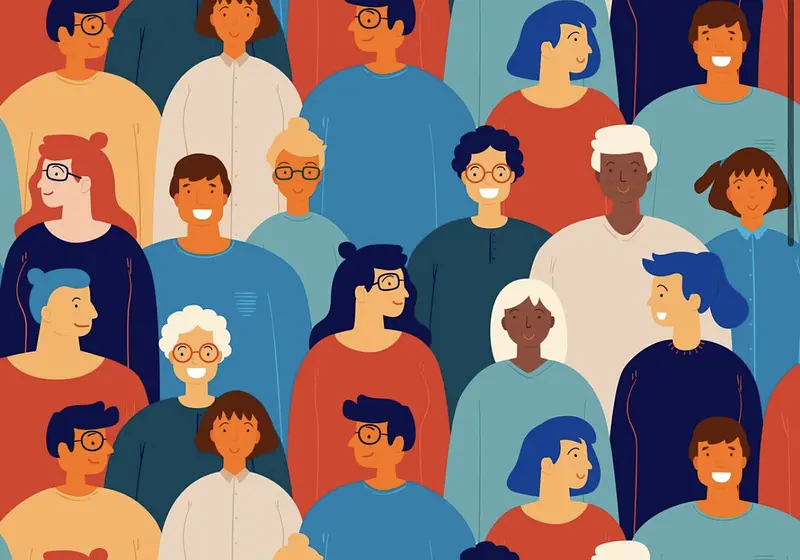
 The Myers-Briggs Type Indicator (MBTI) is a widely used personality assessment tool, particularly popular among the youth. However, the debate surrounding the reliability of MBTI personality types continues to exist. In this article, we will explore the strengths and limitations of this assessment model, offering a balanced analysis to provide you with a comprehensive understanding of the MBTI and its relevance in personal contexts.
The Myers-Briggs Type Indicator (MBTI) is a widely used personality assessment tool, particularly popular among the youth. However, the debate surrounding the reliability of MBTI personality types continues to exist. In this article, we will explore the strengths and limitations of this assessment model, offering a balanced analysis to provide you with a comprehensive understanding of the MBTI and its relevance in personal contexts.


Via Google
Let us slide into your dms 🥰
Get notified of top trending articles like this one every week! (we won't spam you)Strengths of MBTI
1. Self-Discovery and Identity
Teenagers are in a constant stage of self-discovery and exploration of their identity. The MBTI can provide them with a framework to understand their personal preferences and uncover insights into their own strengths, weaknesses, and motivations. For instance, discovering that one falls into the "INFP" personality type can reveal traits such as empathy, a value for authenticity, and a drive for personal values and harmony. This knowledge enables teenagers to gain a deeper understanding of themselves, which is especially valuable during the formative years of adolescence.
Via Google
2. Building Confidence
Teenagers often face challenges related to self-esteem and confidence. The MBTI can help them embrace their unique personal strengths, fostering a sense of self-acceptance and empowerment. By understanding that there are different ways to be successful and valuable, teenagers can gain confidence in expressing their authentic selves.
For instance, introverted teenagers can embrace their need for solitude and reflection, developing self-acceptance and recognizing that their introversion is a natural part of their personality. On the other hand, extroverted teenagers can celebrate their outgoing and sociable nature, finding confidence in their ability to connect with others and thrive in social settings. Ultimately, the MBTI empowers teenagers to embrace their uniqueness and confidently achieve success in various aspects of their lives.
Via Google
3. Career Exploration
As teenagers start considering their future careers and educational choices, the MBTI can provide valuable insights. It offers a framework for understanding their preferences, interests, and strengths, guiding them in making informed decisions. Studies have found certain tendencies among individuals with different MBTI traits.
For instance, introverted individuals often excel in independent and analytical careers such as research or accounting, while extraverted individuals thrive in social fields like sales or teaching. Sensing individuals tend to excel in detail-oriented careers such as engineering or healthcare, while intuitive individuals gravitate towards imaginative fields like entrepreneurship or journalism.
Additionally, thinking individuals often find success in logical careers like finance or engineering, while feeling individuals may find fulfillment in empathetic fields like counseling or healthcare. Judging individuals prefer structured careers such as project management or law, while perceiving individuals thrive in creative fields like entrepreneurship or research.
However, it's essential to remember that these statistics are general trends and do not dictate the ideal career path for individuals. They only serve as a starting point for teenagers' career exploration.

Via Google

Take the Quiz: Which Generation Matches Your Personality?
Discover the generation you truly belong to!
Limitations Of MBTI
1. Lack of Scientific Consensus
The MBTI has been a subject of debate among psychologists due to its limited empirical evidence and lack of scientific consensus. Critics argue that its underlying theory and categorical approach oversimplify the complexity of the human personality. As psychologists Robert McCrae and Paul Costa have argued, “the MBTI does not give comprehensive information on the four domains it does sample.” Thus, the MBTI's dichotomous categorization of personality traits fails to capture the full range of individual differences and the multidimensional nature of human personalities and may hinder teenagers' exploration of diverse facets of their identity.

Via Google
2. Personalities Change Over Time
Another limitation of the MBTI is that it assumes personality as fixed and static, disregarding the natural process of personal development and change over time. Research suggests that personalities are not rigid and can evolve as individuals mature and experience new life circumstances.
Teenagers in particular undergo significant personal growth and development. Their identities, interests, and values may shift as they navigate their adolescent lives. The MBTI's categorization of personality types may restrict teenagers' understanding of themselves by implying that their preferences and traits are set in stone. This can be limiting and prevent teenagers from embracing and exploring their evolving personalities.

Via Google
3. Lack of Validity and Reliability
Critics of the MBTI also argue that it lacks strong scientific validity and reliability. For example, studies have shown that individuals often receive different personality type results when taking the MBTI multiple times, indicating inconsistency in the assessment. Moreover, the MBTI has been criticized for its reliance on self-reporting, which can be subject to bias and inaccuracy.
The validity of the MBTI has also been called into question as it does not align well with established personality theories, such as the Five-Factor Model (FFM), which is widely regarded as a more robust and comprehensive framework for understanding personality.

Via Google
The MBTI offers valuable strengths for teenagers in terms of self-discovery, confidence-building, and career exploration. It provides a framework for understanding personal preferences and can empower teens to embrace their uniqueness.
However, it's important to acknowledge the limitations of the MBTI, including the lack of scientific consensus, the assumption of fixed personalities, and the concerns regarding its validity and reliability. Teenagers should approach the MBTI with a flexible perspective, acknowledging that their personalities are not fixed and can evolve as they grow.
Thus, supplementing the MBTI with other factors can definitely lead to a more comprehensive understanding of oneself and support informed decision-making in personal and career contexts!











